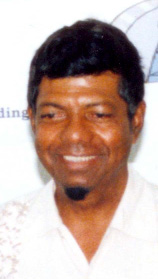The Guyana Teachers Union (GTU) inked a new five-year agreement with the Ministry of Education yesterday, calling it a “giant step” largely because of the non-salary benefits, and not the annual five percent pay hike that teachers will receive.
Negotiations between the Ministry and the union had been protracted, with the union calling for a fifteen percent salary increase and improved conditions. GTU President Colin Bynoe has hailed the non-salary benefits of the new package as “significant.”

Education Minister Shaik Baksh told reporters yesterday that the agreement is a solid one, which reflects government’s commitment to educators. The agreement is subject to an annual review.
As outlined in the new education package for 2011-2015, teachers will have access to a revolving housing fund, but a lending agency is still to be confirmed and negotiations are still ongoing with respect to interest rates.
Baksh said they are working aggressively to reach an agreement on the revolving loan by the end of May. The fund now stands at $200M dollars, and for the next five years an additional $40M dollars is expected to be included in the fund annually.
Bynoe announced at the joint press conference yesterday that some eighty applications are on file for the housing loans. “If the lending agency said they ready tomorrow, we have names on file to send over. The bottom line is that teachers will have access to these funds soon,” he said. Though catered for in the first five-year deal, no teachers benefited from the housing loans. Baksh announced that one of the major achievements of the new package includes a way forward on the ‘de-bunching’ problem which has been repeatedly raised by the union. The issue points to the salary scale for teachers, with the union arguing that persons now entering the profession should not benefit from the same salary as a teacher serving for a number of years. “It’s only fair that the problem is addressed,” Bynoe said yesterday, while noting the union was happy with the fact that there was movement on this.
Previously, the agreement signed with the Ministry and the union failed to address the issue. A committee has been set up to look into the problem and a report is expected no later than May 31.
The new agreement also offers increased remuneration for teachers with certificates, diplomas and Masters Degrees. “We want to encourage teachers to move towards the Masters and doctorate degree in education, so we have increased [benefits] for those qualifications,” Baksh said.
In terms of the non-salary benefits, uniform allowances have been increased and duty free concessions will continue. Additionally, teachers would be awarded house lots on a needs basis; at least 100 every year. However, no new category of teachers has been included for duty-free concessions, with benefits currently extending to Head Teachers only. Baksh also pointed out that this particular aspect of the package is subject to review, particularly as the need arises. And in a bid to encourage more teachers to work in hinterland areas, the Ministry has agreed to provide return airfares for teachers and their spouses, in addition to the airfare of two children under the age of 18 years at the end of each school term.
Additional scholarships are also included in the package for teachers pursuing studies in the areas of Mathematics and Science at the University of Guyana. Bynoe welcomed this development, saying the union is pleased with the focus on upgrading teachers. “We are happy that scope is now given to teachers to qualify themselves against the backdrop of talks about importing teachers,” he said.
The Ministry has also agreed to a $60M payment annually for additional expenses to teachers in the remote areas under the category of ‘station and hard-lying allowances.’ Bynoe also praised this development, calling it timely and critical because of the expenses incurred by teachers in outlying areas.
Bynoe said the negotiations were tough, but that both sides were happy to sign on to the new package. “I’m happy to say that the [union] was not only able to maintain high ground but to climb even higher and that is one of the things I want out teachers to understand,” he added.





